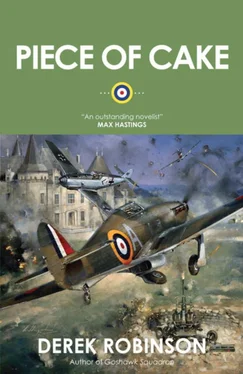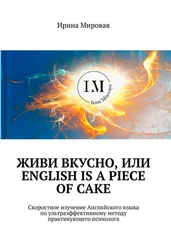By noon the cloud had rolled away eastward and the sun shone on Bodkin Hazel. Squads of airmen, stripped to the waist, sweated to dig trenches. Other squads filled sandbags and built aircraft bays near the perimeter. Several Fighter Command airfields had been shot-up, planes destroyed. During the morning there were two airraid warnings but nobody stopped work. The sky was rarely empty of aircraft, and once a Junkers 88 flew slap over the aerodrome at two hundred feet, so fast the ack-ack never even fired. Everyone was supposed to carry his gas-mask with him, and the pilots were told to keep their Colt revolvers handy at all times. Skull gave them a short lecture on anti-invasion precautions. “The enemy may try to land troops by glider,” he said, “which is why obstacles are being set up on all open land. If you have to put down on a field or at a strange airfield for any reason, watch out for poles or heaps of rocks or the like. If you make a forced landing anywhere, do not argue with the Home Guard. I have met some of them. They tend to be elderly and short-tempered. Often their aim is poor. Annoy them and they may fire a warning shot that hits you. Are there any questions?”
Steele-Stebbing raised his hand. “Sir, what’s the best approach to take in that situation, vis-à-vis the Home Guard?”
“Identify yourself clearly,” Skull said.
“Show them your hyphen,” Cattermole advised. “They wouldn’t dare shoot a man with a hyphen.”
“Yes they would,” Patterson said. “That’s what double-barreled shotguns are for.”
Some laughed, some groaned, some were too tired to do either. Cattermole said: “Actually, I’ve seen Iron Filings’ hyphen. He showed it to me in the showers the other night. It’s not very impressive, I’m afraid, but then nobody in his family—”
“Lunch,” Barton said. “Thank you, Skull. Jolly useful.”
There was another air-raid warning during lunch (cold roast chicken, boiled potatoes, gooseberry tart, cream) and gunfire thudded and rumbled from the direction of Dover. Aircraft were always wandering about the sky but they were far too high to be identified. Rumors circulated of heavy raids on Portsmouth and Norwich, of huge destruction and raging fires, of colossal scores by Spitfire squadrons. A Heinkel, it was said, had bombed an infants’ school in Canterbury, massacred seventy-nine toddlers, then been hit by ack-ack; the pilot baled out and was lynched by mothers before the police could reach him. Flash Gordon had that story. “Who says?” CH3 asked. “I heard it on the radio,” Gordon said, “So there.”
Skull got up and made a telephone call. When he came back he said: “As it happens, my cousin is assistant chief constable of Canterbury. He says that no school in Canterbury has been bombed.”
“Did I say Canterbury?” Gordon said. “I meant Winchester.”
“Know anybody in Winchester, Skull?” CH3 asked.
Skull thought. “Only the bishop,” he said.
“Or it might have been Salisbury,” Gordon said. He helped himself to more gooseberry tart. “They hung him from a lamppost. With a clothesline.”
“Seventy-nine toddlers, you said.” CH3 balanced his spoon on his outstretched finger. “That’s a very precise figure.”
“Yes, it is, isn’t it?” Gordon was generous with the cream.
“Mind you, it was a good school. That’s why they got so upset. Education is very important in Salisbury.”
“Or Winchester,” Cox said.
“Tell me, Flash,” CH3 said, “did they count the dead toddlers before or after they lynched the Jerry pilot?”
“Yes, definitely,” Gordon said, his mouth full. “Before or after. No mistake.” When they laughed he looked mildly surprised. “Please yourself,” he said. “I’ve seen it before.”
“Eat up,” CH3 said. “I want to take a squadron photograph.”
He arranged them in a line in front of the control tower. There was the usual horseplay and clowning until he told them that his first shot was useless because they had all moved. “Now look at me this time,” he said. For a moment they stood still and smiled at the camera. “Hold it!” he said, and behind them a revolver went off with a startling crack-boom . Inevitably they all looked around. “What the hell are you doing?” Barton shouted at a police corporal. The man was pointing his gun at the ground.
“It’s all right, Fanny,” CH3 said. “I told him to do that. Thank you, corporal. Now, can you all see the naked lady standing behind me?” The camera clicked. “Beautiful.”
“I take it that was some kind of joke,” Barton said, as they strolled to the deckchairs near dispersal.
“Practical joke. Very practical.”
“I see.” Barton glanced, warily. “Glad to see you’re having fun again.”
The revolver shot had not helped Steele-Stebbing’s nerves. He had awoken with a hangover, his first ever, and loud noises still made him flinch. He avoided conversation, sat in the shade with his Daily Telegraph and waited for his brain to stop throbbing.
“What d’you think of that, then, Skull?” Fitzgerald pointed to the headline on the front page. “Sixty-three Huns knocked down yesterday. And we only lost a dozen.”
“Fifteen, actually.”
“All right, fifteen, if you’re going to be bloody sniffy about it. Fifteen to sixty-three, it’s still a damn good score, isn’t it?”
“Quite. Mind you, in addition to the fifteen of ours shot down, one must add fighters lost through bad landings and taxiing accidents and so on. At least half a dozen a day.”
“Skull,” Barton said, “has anybody worked out how long the Luftwaffe can last if they lose sixty-odd kites every time they come over here?”
“I don’t think so.”
“Well, have a go at it. How many kites did they have to start with?”
“It’s not as simple as that. You see…”
“I’ll do it for you, Fanny.” Cattermole got up and, as he walked behind Steele-Stebbing, plucked the Telegraph from his fingers. “You divide Hitler’s birthday by the starting price of the favorite in the 3.30 at Ascot,” he said as he made for the portable lavatory, “and take away the number you first thought of. The answer’s next Tuesday.”
Steele-Stebbing’s fingers squeezed the struts of his deckchair. His face was a dull red and his eyelids were heavy. He looked as if he might cry. Nobody spoke. He got up and walked away. “What a drip,” Macfarlane said.
“If you ask me, they’ll run out of pilots before they run out of planes,” Fitzgerald said lazily. “Stands to reason. If they don’t get any proper training they’re not going to last the pace, are they?”
“I read in the paper the other day…” Patterson began, when he saw Skull shaking his head. “What’s up?”
“The popular belief that Luftwaffe training is of poor quality is a myth, and in my opinion a dangerous myth.” Heads turned: Skull was not usually as crisp as this. “You would be well-advised to ignore any propaganda about German pilots being rushed through inadequate flying schools. My information is that enemy aircrew have been very well trained indeed. Perhaps better trained than some of you.”
“What bosh!” Fitzgerald said.
“Squareheads can’t fly,” Macfarlane said. “They’re not streamlined, are they?”
Sergeant Brook felt confident enough to offer a remark. “Germans do everything by orders, don’t they? No what-d’you-call-it. Initiative.”
“Chap I bumped into this morning knew how to fly,” Cox said thoughtfully. “ And he had plenty of what-d’you-call-it. Damn sight too much of it for my comfort.”
“Still, you got the better of him in the end, didn’t you, Mother?” Barton said. “I mean, he quit first.”
Читать дальше












